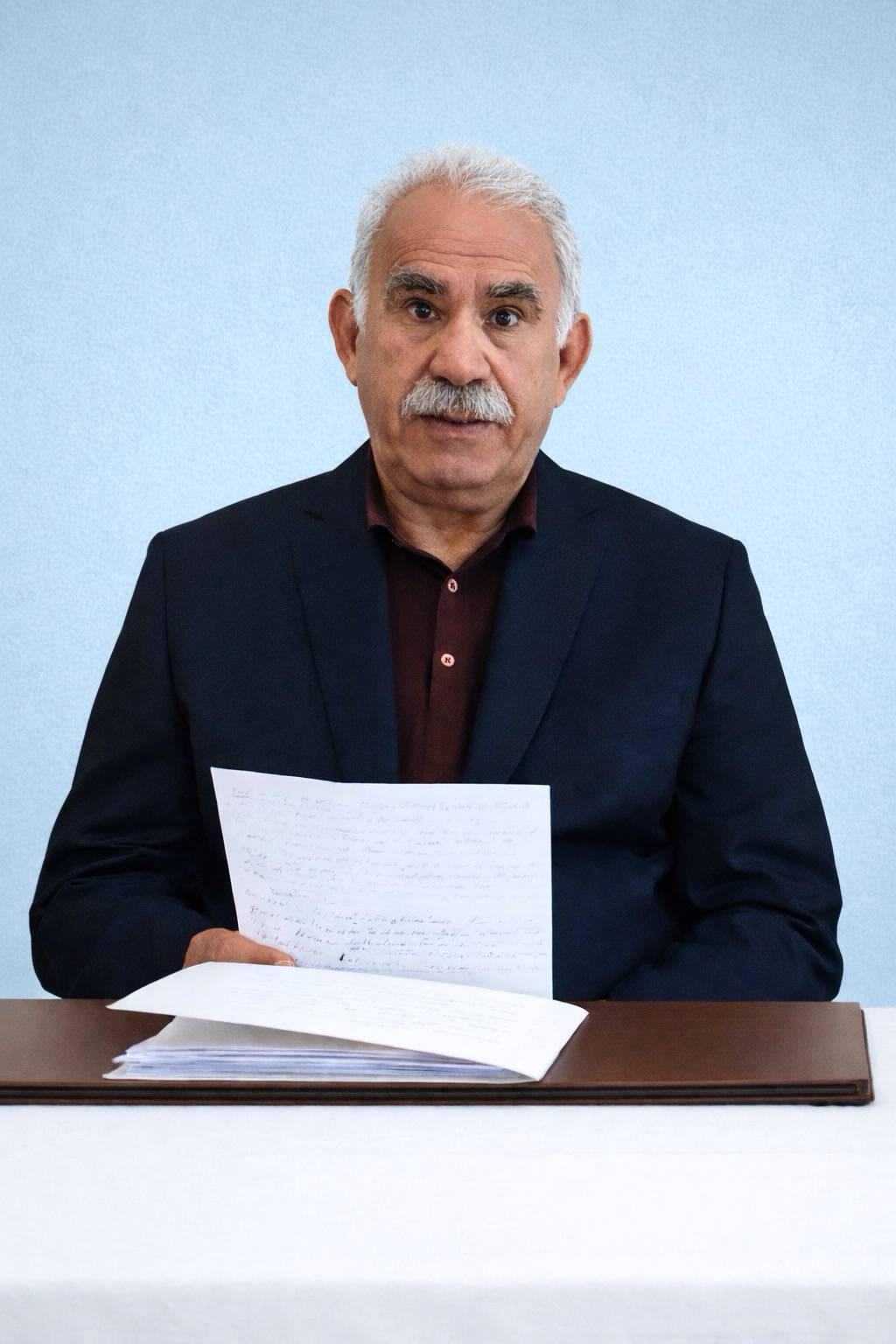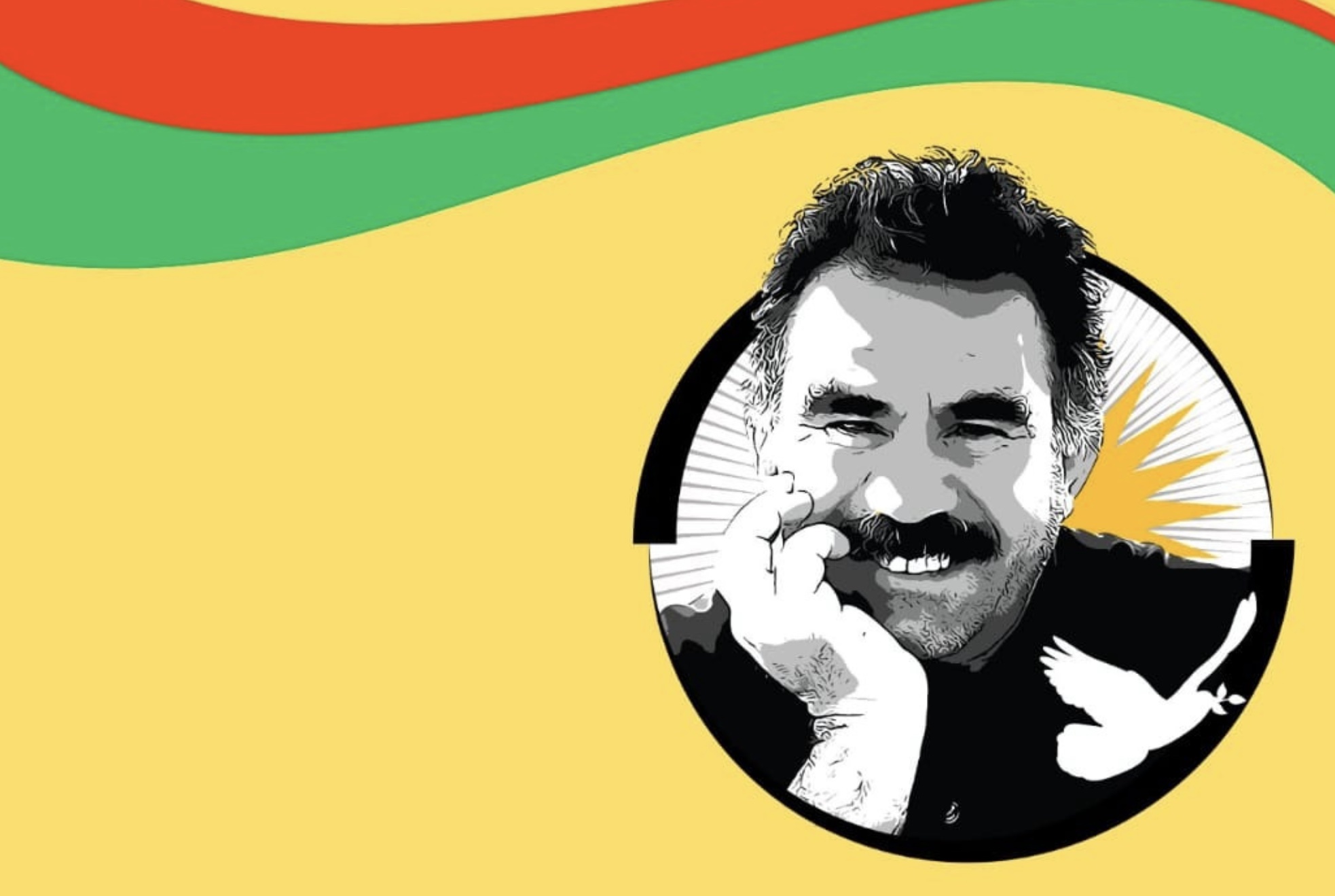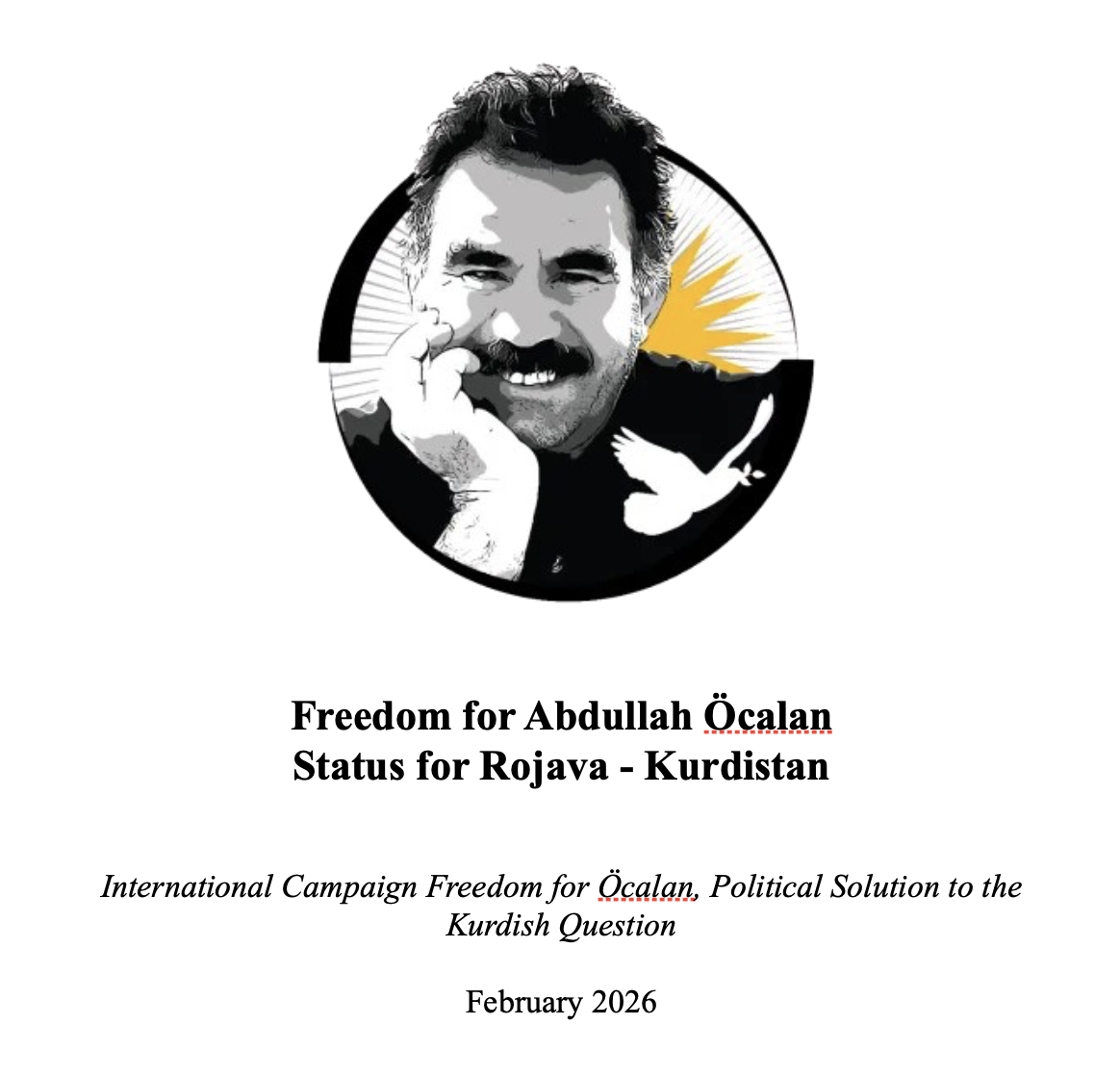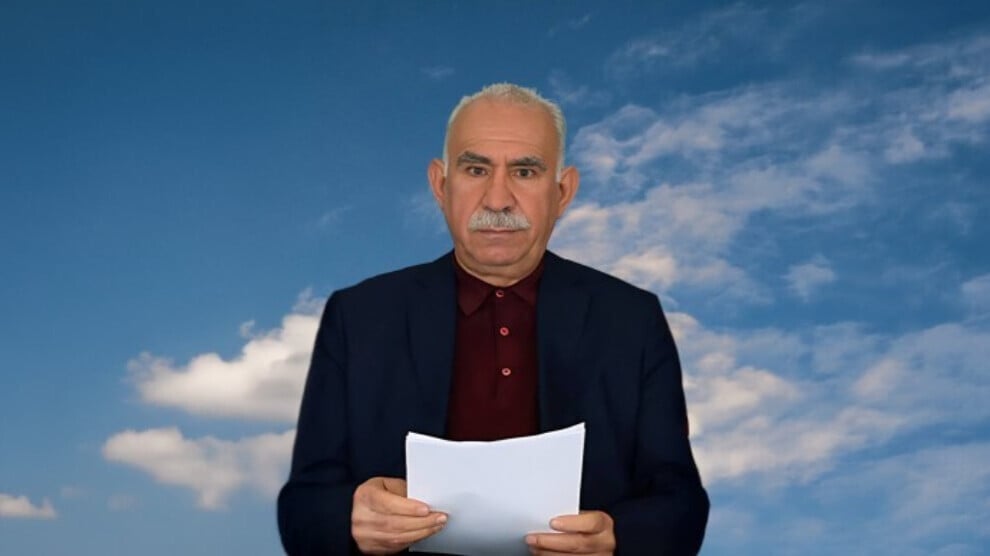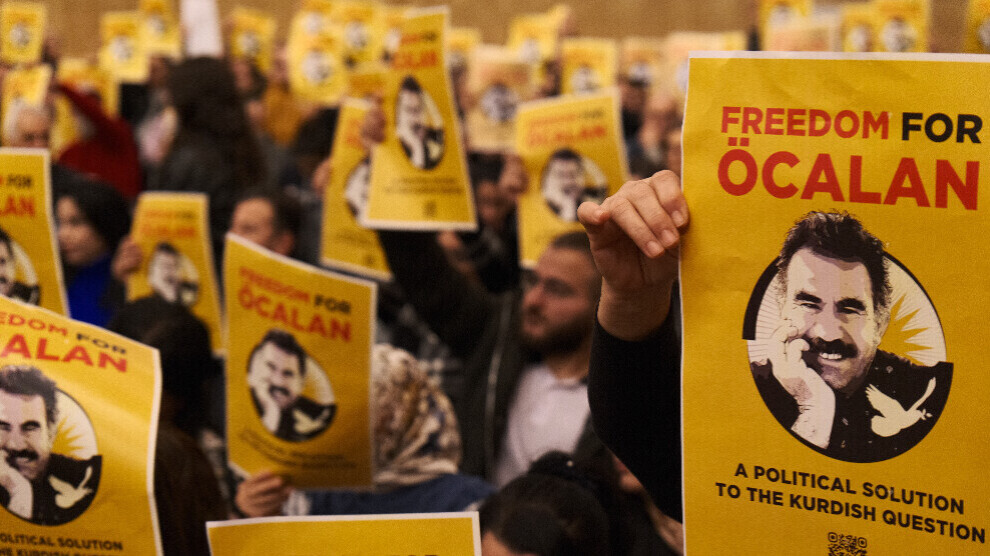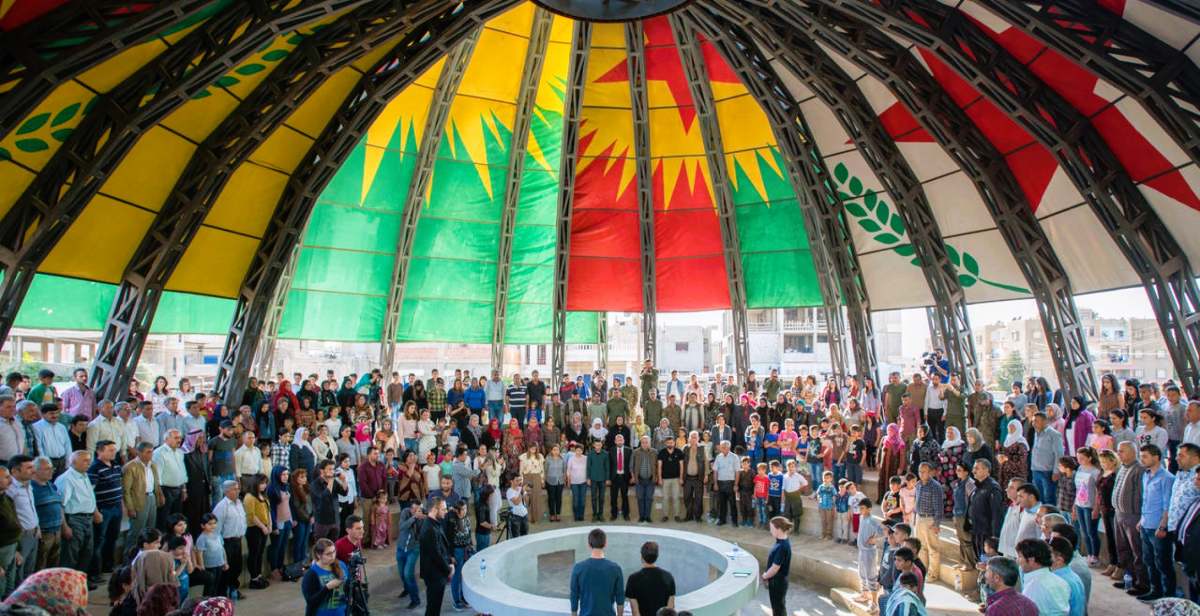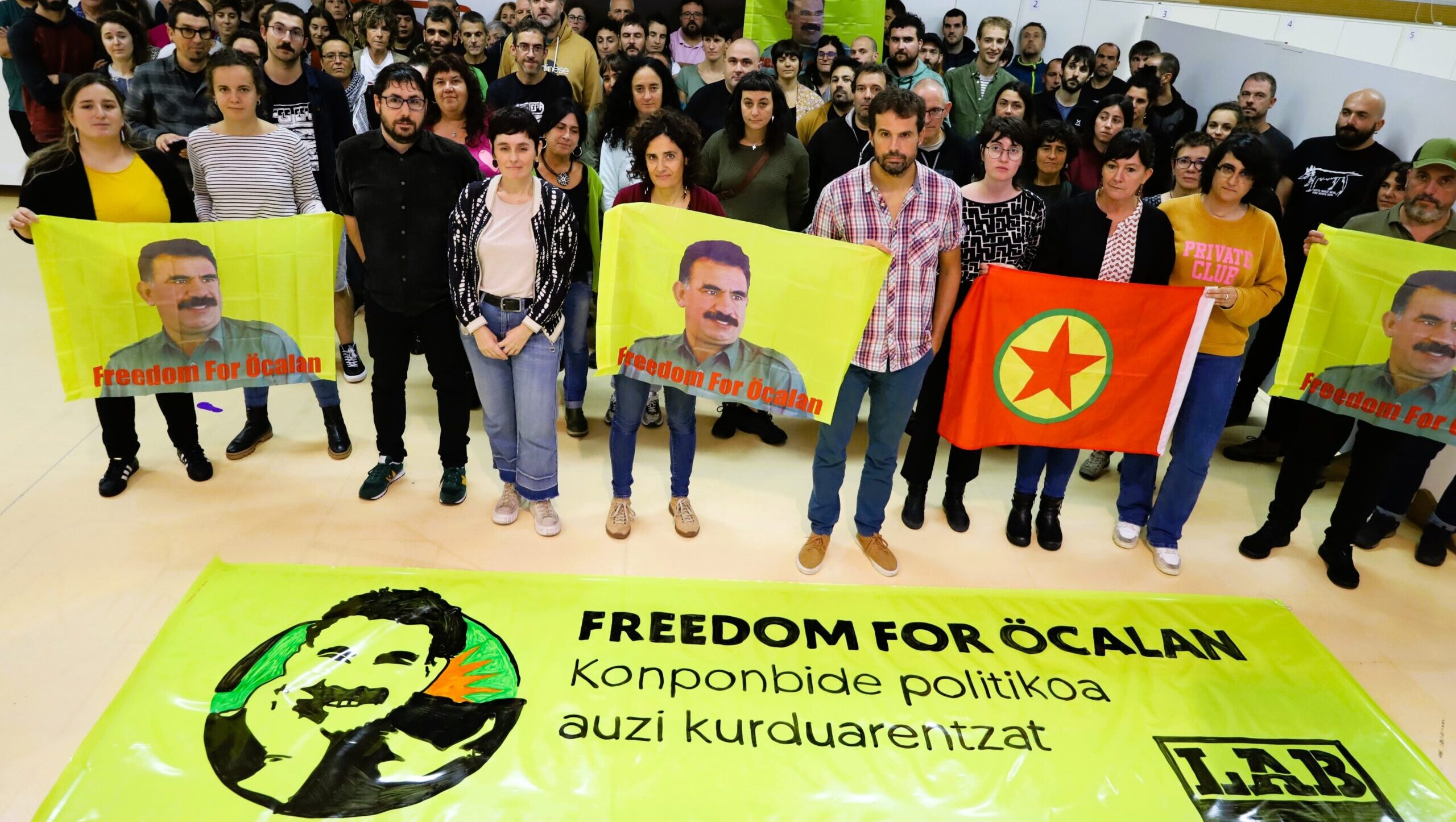
Öcalan Has Been Incarcerated By The Turkısh State For
International Campaign
Freedom for Öcalan, Political Solution to the Kurdish Question
Since October 2023, the global campaign ‘Freedom for Öcalan, A Political Solution for the Kurdish Question’ has brought together unions, social movements, political parties, elected officials, artists, intellectuals, activists, and millions of Kurds and their supporters. The main aim is to end the isolation of Kurdish leader Abdullah Öcalan, and ultimately secure his freedom.
News
27
Feb
New Statement from Mr Öcalan: 1st Anniversary of ‘Call for Peace and Democratic Society’
-
Posted by
kardinallerlordu
Esteemed Friends,
We pr...
13
Feb
Trade unions in the Spanish State call for release of Öcalan and recognition of Kurdish people
-
Posted by
insisting_on_freedom
Several trade unions in the Spanish State, Basque Country, Galizia, Catalonia, Asturias, Ca...
10
Feb
New Dossier: Freedom for Abdullah Öcalan, Status for Rojava – Kurdistan
-
Posted by
insisting_on_freedom
Kurdish societies, movements, and political actors have played a leading role in advancing ...
05
Feb
Öcalan’s pivotal role in the agreement between the SDF and Damascus
-
Posted by
insisting_on_freedom
The following was first published by Mezopotamya News Agency, based off of discussions with...
04
Feb
Call for Demonstration: Freedom for Öcalan, Status for Rojava!
-
Posted by
insisting_on_freedom
On behalf of the international campaign Freedom for Öcalan, Political Solution to the Kurdi...


